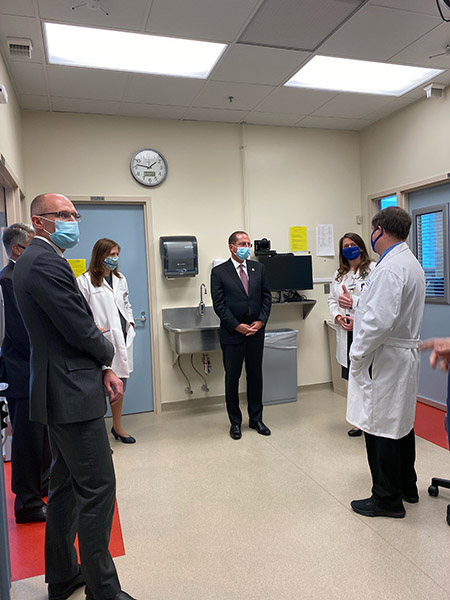| Since Republicans took hold of the majority in Georgia for the first time since Reconstruction in 2002, the Democratic party’s strategy to regain power has been unsuccessful. However, the 2016 election represented a turning point, particularly in the metro areas, where Hillary Clinton saw a 48,000-vote margin. This same region voted solidly in 2018 for Stacey Abrams against Brian Kemp, and Democrats picked up a net 11 legislative seats. Areas outside of metro regions remain Republican strongholds, but with rapid growth in the metro Atlanta region, Georgia’s political color could change in the coming years.
This trend is expected to continue in the November election this year, with the Democrats hoping to pick up 16 seats in the State House to take a majority. Based on polling and voting turnout numbers, an expected gain of eight to 12 seats is likely, putting House Democrats single digits away from the majority. State Senate Democrats have a tougher hill to climb, needing to take eight seats for an outright majority. Based on current polling and turnout estimates, Senate Democrats have the greatest likelihood of taking three seats, all of them within the metro Atlanta area.
Overall, the outlook is that Democrats will make significant gains in each chamber. For the House, even if they are short seats, House Democrats will wield large influence as they tend to vote in unison more consistently than their Republican colleagues. If Republicans have a single digit margin for their majority, they will likely be in the position of negotiating with the other party to pass major legislation. For the Senate, Republicans often vote in unison and are cohesive. Therefore, even losing seats will not have a major effect on passing legislation in the Senate.
For the special election to replace Senator Johnny Isakson, the race is almost guaranteed to go to a January runoff. Based on current polling, the main Democratic candidate Raphael Warnock is virtually guaranteed a spot in the runoff and will likely face appointed incumbent Senator Kelly Loeffler (R) or Congressman Doug Collins (R). Georgia’s other U.S. Senate race is a hotly contested race and one of the nation’s closest in polling. Internal polls for both campaigns suggest that a runoff in this race has a high chance of probability, primarily brought on by the presence of a Libertarian candidate. If both of these Senate races end up in January runoffs, with the U.S. Senate majority potentially in the balance, the ensuing races will likely break all fundraising and cost records.
With the passing of Congressman John Lewis, the retirements of Reps. Rob Woodall and Tom Graves, and the departure (for a Senate run) of Rep. Doug Collins, the Georgia House delegation has lost significant seniority. Rep. Woodall’s (R-GA-7) seat may flip to Democrat Carolyn Bourdeaux, and Rep. Lucy McBath (D-GA-6) is in a fight for her political career against former Rep. Karen Handel (R). Rep. Lewis’ seat (D-GA-5) is expected to remain in the Democrats’ hands with former GA state senator Nikema Williams as the designated heir apparent. Overall, the House delegation is expected to remain majority Republican; in the 116th Congress, the Georgia delegation was composed of five Democrats and nine Republicans.
One Emory, your vote, our future
The Emory Votes Initiative was developed last year and is an initiative dedicated to fostering a more civically engaged campus by providing voter information, increasing voter turnout, and empowering our community with credible resources. We encourage you to visit the toolkit and be sure to vote. | 





